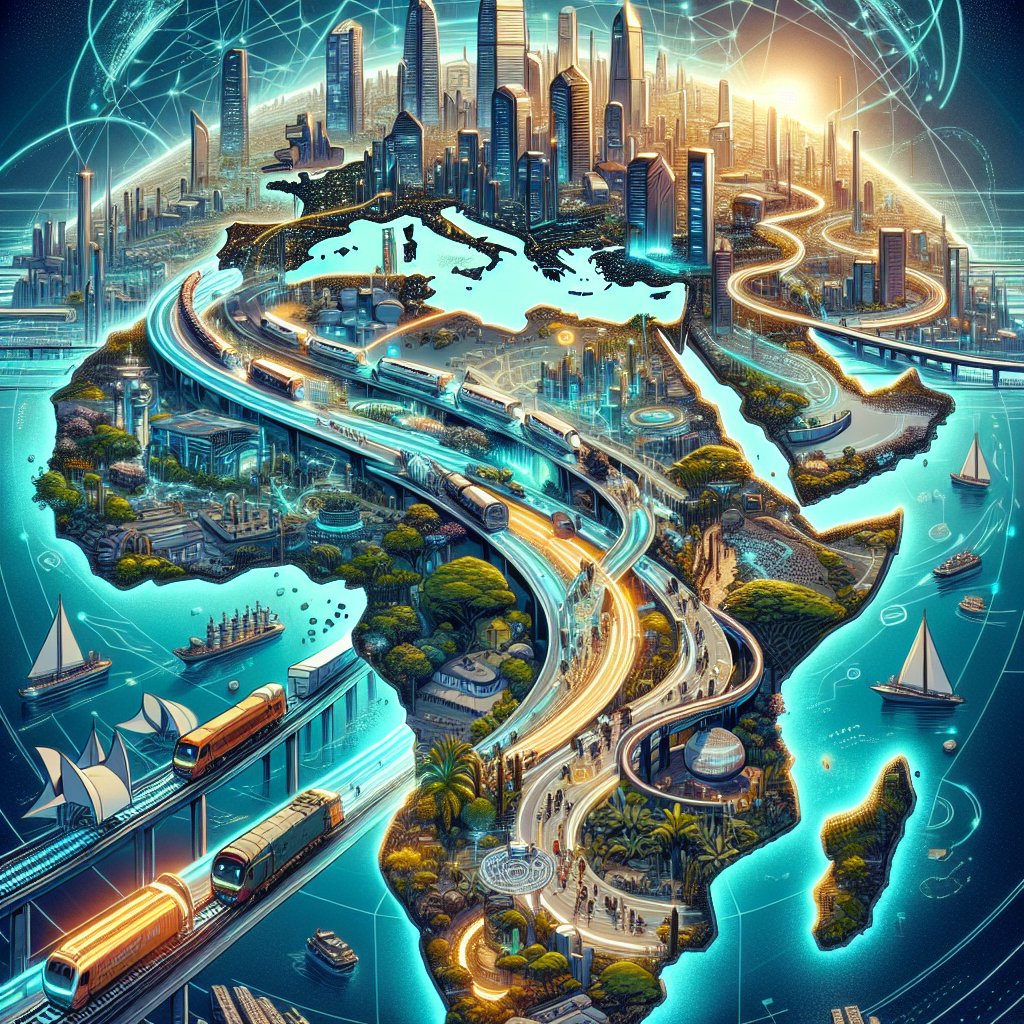Image created by AI
A Greener Belt and Road: Why Africa Must Take Charge of China's BRI Evolution
Amidst the global geopolitical landscape, Africa stands at a crossroads with the evolving nature of China's Belt and Road Initiative (BRI). Since the inception of BRI in 2013, it has undeniably marked its presence in Africa, engaging with 53 African countries to date. 2023 alone heralded US$21.7 billion in new BRI deals, enriching Africa's infrastructure landscape with better ports, railways, and notably, renewable energy projects.
As China pivots towards a "small and beautiful" BRI approach encompassing greener and smaller-scale projects, Africa finds itself poised to leverage these developments. However, it's not merely about embracing what is offered; it is about proactively calibrating these offerings to suit Africa's strategic ambitions. In this light, the September Forum on China-Africa Cooperation (FOCAC) presents a timely juncture for Africa to assert its strategic intentions and catalyze an enhanced governance model for BRI engagements.
The transition from the expansive infrastructure-driven framework to a focus on projects that are less financially taxing aligns with Beijing's recalibrated approach, fostered by an awareness of past BRI-induced challenges. The Standard Gauge Railway in Kenya projects a cautionary tale of an economically unviable mega-project, whereas Chinese investments' contribution to debt distress in various African states remains a contentious topic, despite the rebuttal of the "debt trap diplomacy" narrative.
Beijing's shift towards a risk-averse BRI model is a strategic repositioning, heralding a future of investments vested in environmentally sustainable and socially inclusive projects. The BRI's expansive reach, now including digital and health spheres, indicates its role in not just infrastructure but in framing a multi-faceted partnership landscape.
However, the downscaled BRI isn't an elixir for Africa's complex developmental fissures. The African states must reciprocate by formulating clear-cut strategies and explicitly presenting their developmental agenda. The exertion of African agency is integral to ensuring that BRI projects aren't merely serving China's interests or agendas but are mutually beneficial and contextually relevant.
Ahead of the consequential FOCAC, it is imperative for African countries to compose a unified narrative articulating precise and strategic objectives. Such proactive diplomacy could significantly influence the fabric of Sino-African relations, situating Africa not as a passive backdrop for external economic strategies but as an active, equitable partner in its development discourse.










